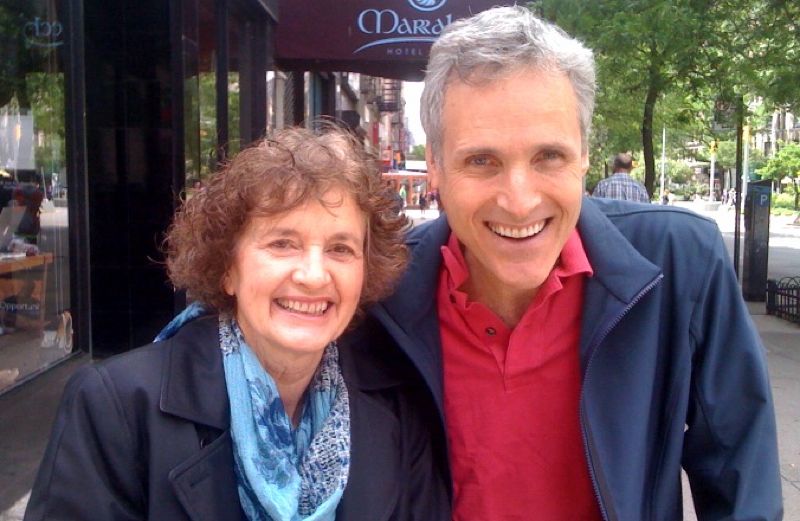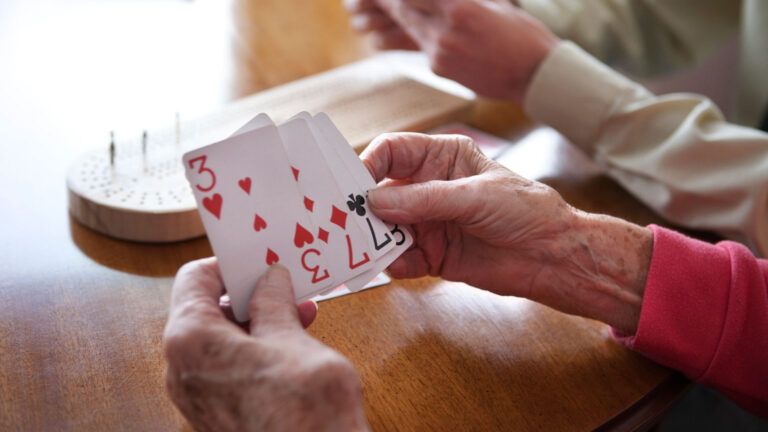How do you pray when you’ve lost everything?
“I made sure I grieved first,” says my friend Joy Carol. “If I just let go and had a good cry for a couple of hours, then I could go back to holding on to hope. And get back to prayer.”
That’s what Joy conveys: hope, optimism, faith. Joy, just like her name. And she’s got quite a story.
I hadn’t seen Joy in years, and then the other day, I was rushing to a choir rehearsal and a woman outside of Starbucks called out, “Rick!” I stopped in my tracks. It was Joy, sitting in one of those scooters for invalids, accompanied by a caregiver.
Joy is a spiritual director, helping people with their prayer life. She writes books, leads retreats and works one-on-one with a couple of dozen “directees,” as she calls them.
“What happened to you?” I asked, seeing her in the mobility scooter.
“Oh, my goodness,” she said, “what a journey I’ve been on.” Last summer she was hiking in Greece, climbing mountains, and she found it hard to walk. She flew home, thinking maybe she’d overdone it. But no, back in her New York apartment, she kept falling. Somehow the signal from her brain to her feet wasn’t working. Finally, losing all mobility, she checked into the hospital.
“They performed test after test,” she said. It took a team of doctors months before they could come up with a diagnosis: paraneoplastic syndrome, a rare disorder of the nervous system that sometimes accompanies cancer. But of course, Joy didn’t even know that she had cancer. Breast cancer, as it turned out.
They did surgery on the breast cancer, then chemo and radiation, making sure there wasn’t a single cancerous cell left in her body. In the meanwhile, her nervous system got worse.
“I couldn’t button my shirt, couldn’t type, couldn’t thread a needle. It started with my legs and moved to my arms and hands.” While doctors looked for other treatments, Joy had to give up the many things that had given her life purpose. “My car, my work, the retreats, my workshops, the trip to the Holy Land I had planned,” she said.
“How did you pray through it all?” I asked.
“I didn’t want to feel sorry for myself, but with each loss, I realized I had to acknowledge it. I’d give myself a good cry. Just grieve enough so I could move on. Then I could be grateful for my doctors, grateful for the wonderful caregivers, grateful for the things I had. Grateful that I could still talk to God.”
During treatments she used the sights and sounds around her. “When I went into radiation, there was a bell signaling the start of a treatment. It reminded me of my prayer bells. Use this treatment, Lord, I prayed. Help it heal me. Be with me.”
The latest treatment seems to be working. Mobility has returned to her hands and arms. She’s even been able to walk–very carefully and slowly–at home. And she’s back to work as a spiritual director, with new stories of her own about effective prayer. More than anything she’s grateful. Joyful.
I was late to choir rehearsal, but I was very glad Joy stopped me outside Starbucks, calling from her scooter. We all face times when prayer comes hard, but her advice seemed particularly pertinent. Grieve over your loss. Give it a good cry. Give it back to God. And then open yourself up to all there is in life to be thankful for.







